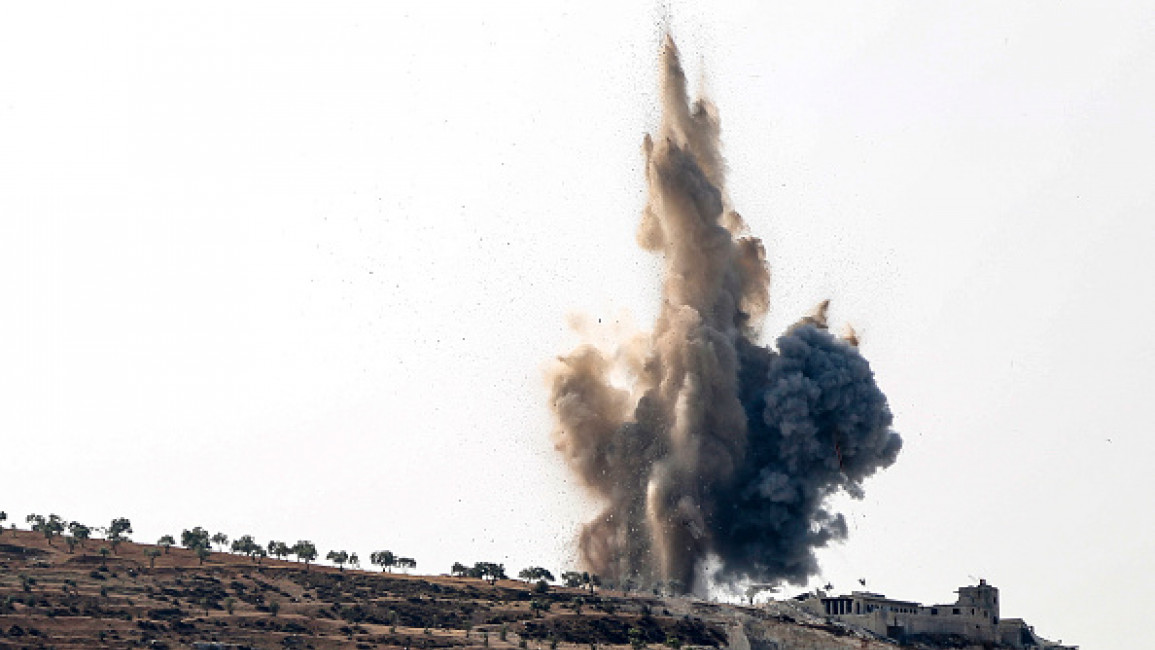Russian forces conducted over 20 airstrikes in northern Syria on Saturday, some of which reached the vicinity of refugee camps near the Syrian-Turkish border.
The Russian strikes targeted the province of Idleb and Aleppo’s countryside as they hit areas inside Syria’s de-escalation zone, according to local activists.
The strikes targeted Idleb’s towns of Salwah and Qah, alongside Kafr Amma in Aleppo’s countryside, local media activist Bilal Bayoush told al-Araby al-Jadeed.
Russian warplanes also targeted the outskirts of Idleb’s al-Bara village, according to the Syrian Civil Defence, otherwise known as the White Helmets. Syrian opposition fighters say Russian bombardment in the area has recently increased.
The Russian escalation is believed to be a response to Turkish threats against the Kurdish-led Syrian Democratic Forces, as Russian strikes could prompt a wave of displacement towards Ankara, Abu Yazan al-Shami, a former leader in the ‘1st Coastal Division’ opposition group, told al-Araby al-Jadeed.
Read Also: What’s Left of the Privacy of the Women in the Camps of Idleb
Local NGOs have warned that refugee camps in northern Syria have reached their maximum capacity, following a recent influx of internally displaced civilians.
The Syrian Response Coordinator Group has called on Russia to stop “war crimes” by targeting areas near the camps.
“Russian airstrikes on the de-escalation zone… targeted one of the largest areas containing hundreds of thousands of displaced people,” the NGO said in a statement on Saturday.
“We demand an immediate halt to the repeated attacks on the civilian population… especially the targeting of areas that contain [IDP] camps,” the statement added.
This comes amid concern surrounding increased attacks on Syrian refugee camps after one child was killed by the regime and Russian bombings on a camp for widows in Northern Idlib on Wednesday, according to the White Helmets.
Although Moscow, staunch supporters of the Syrian regime, and Ankara, supporters of the Syrian opposition, back opposing sides in the bloody war, the countries previously worked together to broker the 2020 ceasefire agreement in Idleb.
This article was edited by The Syrian Observer. The Syrian Observer has not verified the content of this story. Responsibility for the information and views set out in this article lies entirely with the author.


